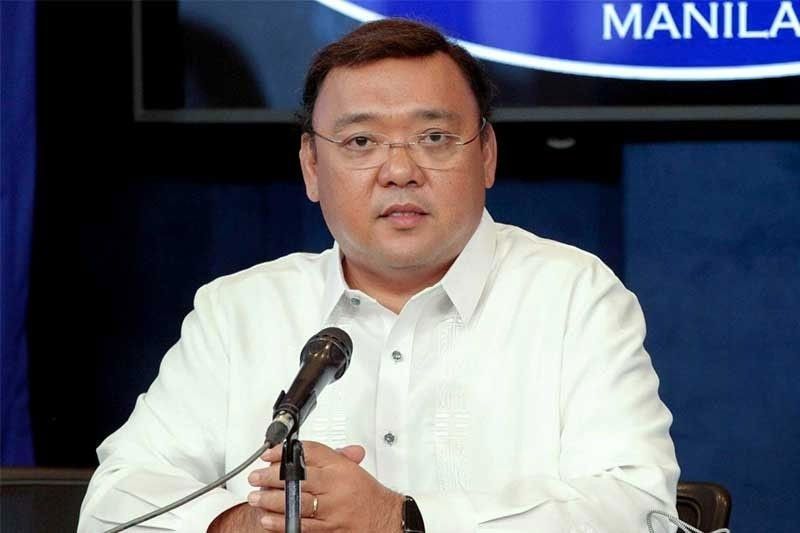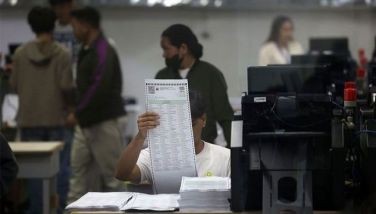Palace firm on August 24 opening of classes

MANILA, Philippines — Malacañang is firm on its decision to start classes on Aug. 24 despite concerns that some areas are not ready for blended learning because of lack of reliable internet access.
“Well, as far as the actual date of classes, there is a law. We have to comply with the law, which is the last week of August. Unless Congress (passes) a law providing that we could open on a later date,” presidential spokesman Harry Roque said yesterday.
Section 3 of Republic Act No. 7797 states that the school year shall start on the first Monday of June but not later than the last day of August.
The Department of Education (DepEd) has adopted blended learning, which uses the internet, television, radio and modules, this school year as it is risky to hold face-to-face classes because of the coronavirus disease 2019 (COVID-19) pandemic.
Education Secretary Leonor Briones has said the target is to open classes on Aug. 24, arguing that the students should not be left behind in terms of learning despite the health crisis.
Some local executives, however, are urging DepEd to postpone the opening, saying some students cannot afford to buy gadgets like computers and laptops, or tablets.
Vice President Leni Robredo has also joined calls to defer the start of classes, saying teachers should be given more time to prepare instructional materials.
The DepEd expressed its appreciation to local government units (LGUs), non-government organizations, and other education stakeholders as well as President Duterte for their support in the department’s challenging effort to resume education under the so-called new normal.
“We are highly indebted to our partners and leaders who are with us in ensuring the safety of our learners, teachers, and parents in these difficult times,” DepEd said in a statement.
DepEd said that there were more than 10 million students that have enrolled for school year 2020-2021 nationwide, through the remote registry conducted by the department to ensure compliance with physical distancing during the general community quarantine, in the first two weeks of enrollment period.
“This outpouring of support only inspires us more to be prepared on the challenges of this extraordinary school year. We have been engaging with private partners in preparing and updating various learning delivery modes that will be offered once classes start,” DepEd said.
“We are working closely with our LGUs in the proper deployment of learning resources. Along this line, we are also setting up policies and guidelines to further protect the safety and health of our learners and teachers,” DepEd said.
The Department of Science and Technology (DOST) said it will provide full support to the DepEd as it seeks to deliver blended education to continue the education of school children amid the pandemic and living in the new normal.
Science Secretary Fortunato dela Peña said that their Science Education Institute was preparing to help come up with top-notch quality STEM (Science, Technology, Engineering and Mathematics) learning content for radio and television that had already been announced by Briones as channels through which they will deliver blended education.
Dela Peña said that the DOST-SEI has STEM learning modules for elementary students through its Radyo Eskwela sa Siyensiya Program and for high school students through its Tuklas Siyensiya sa Eskwela Program.
Sen. Sherwin Gatchalian, chairman of the committee on basic education, and Sen. Bong Go filed separate bills seeking to expand the use of the Special Education Fund (SEF), which is generated from the one percent tax on real property and normally used for the maintenance and operation of public schools.
Gatchalian’s Senate Bill 1579 or the 21st Century School Boards Act amends Republic Act 7160 or the Local Government Code of 1991 to involve more stakeholders in local school boards to increase their functions and encourage every member of the local community in basic education governance.
The measure also mandates local school boards to introduce interventions for continued learning delivery in times of calamities and emergencies that disrupt classes.
“We want to strengthen local school boards as they are our partners in meeting the needs of our teachers and students. This is one step to involve the community more in giving quality education to our youth,” he said.
Go said he recognized the need for local government units to maximize resources in order to prepare their local educational institutions to quickly adapt to the DepEd policy of “blended learning” due to the COVID pandemic.
He also proposed to the education sector to innovate ways on how to conduct teaching and learning while adhering to physical distancing protocols.
Go welcomed the offer of state-owned Intercontinental Broadcasting Corp. (IBC-13) to use its network as a remote learning platform. However, he said that in order to successfully implement blended learning, it is essential to provide schools the necessary equipment and school supplies to adopt new techniques.
The Teachers’ Dignity Coalition (TDC), welcomed the issuance of instructions by the DepEd on the appeal of tutors to extend the work from home (WFH) scheme for public school teachers.
Benjo Basas, TDC national chairperson and a Caloocan City public school teacher, said that Education Undersecretary Jesus Lorenzo Mateo has issued initial instructions to regional directors to clarify the implementation of the DepEd Order No. 11, series 2020, the same order assailed by the TDC in its appeal to Secretary Briones.
DepEd Order No.11 had reportedly instructed public school teachers to start reporting for work in public schools by June 22.
TDC said that in the instructions, Mateo, citing escalating concerns of their personnel, ordered regional offices to clarify the “WFH arrangement is still highly recommended” and the “DepEd Order No. 11 does not encourage physical reporting.”
“It only proves that the order resulted in confusion especially on how it will be implemented in the field,” Basas said.
Parents’ crash course
In pushing for virtual education amid the global pandemic, the DepEd should also consider the reality that parents of students would also need a crash course on online learning.
“Since parents will be the de facto teachers under the distance learning method, I hope the DepEd has also considered teaching the parents so they are aware of their roles under the new system,” Rizal Rep. Fidel Nograles reminded the DepEd leadership.
He urged Secretary Briones to find ways to educate parents on the method especially since not all parents are tech-savvy and have been used to old-fashioned way of learning.
He recognized that there are many unique challenges under the new method, especially for parents.
Under the proposed setup, parents would be forced to split their time between their jobs and their children’s schooling which may be done mostly at home.
The education department reported that as of June 16, about 11.3 million students have registered via the remote or virtual enrollment system for both public and private schools in the basic education level.
Of this number, around 10.9 million learners are enrolled in public schools, while 355,045 have registered in private schools.
Deputy Speaker Mujiv Hataman urged DepEd to be more innovative in times of crisis like this pandemic, saying students can learn through a “hybrid” setup.
He called on the national government to use the time before the reopening of classes to “prepare both public and private schools for the new education normal and come up with a blended and hybrid plan for students of all needs.” Rainier Allan Ronda, Delon Porcalla, Paolo Romero
- Latest
- Trending































